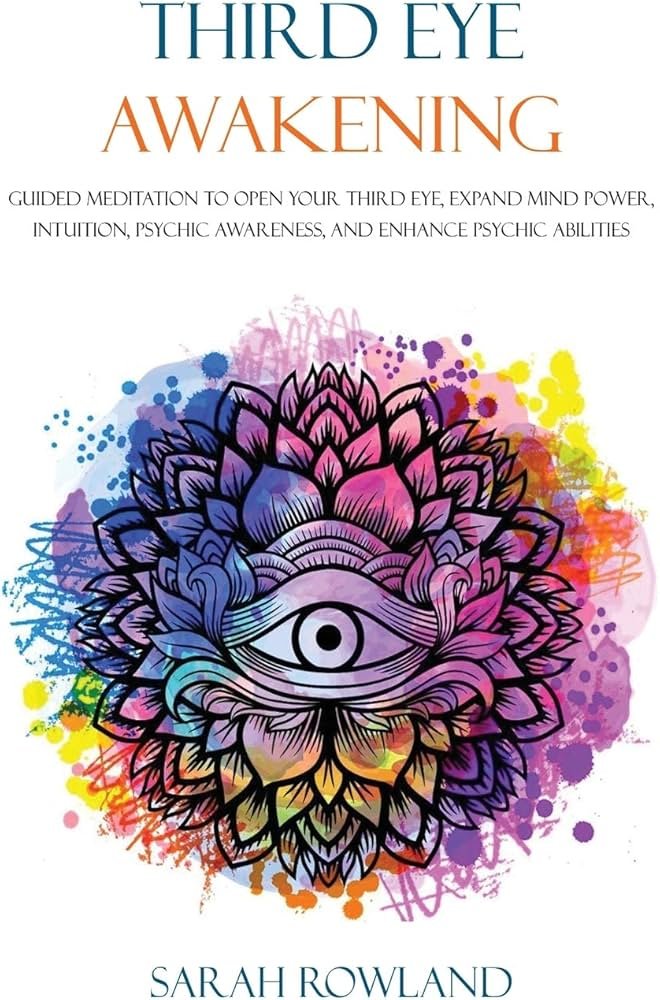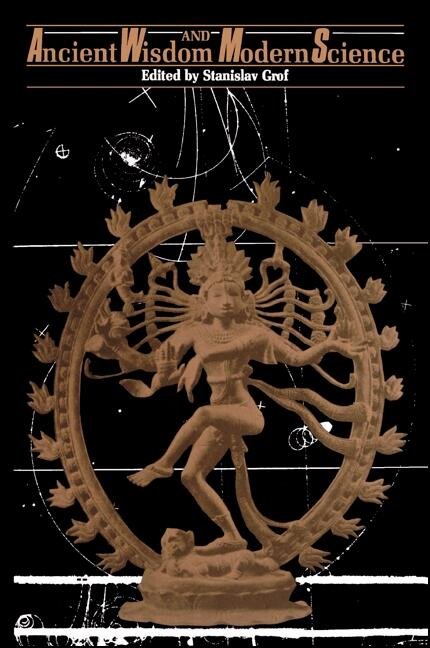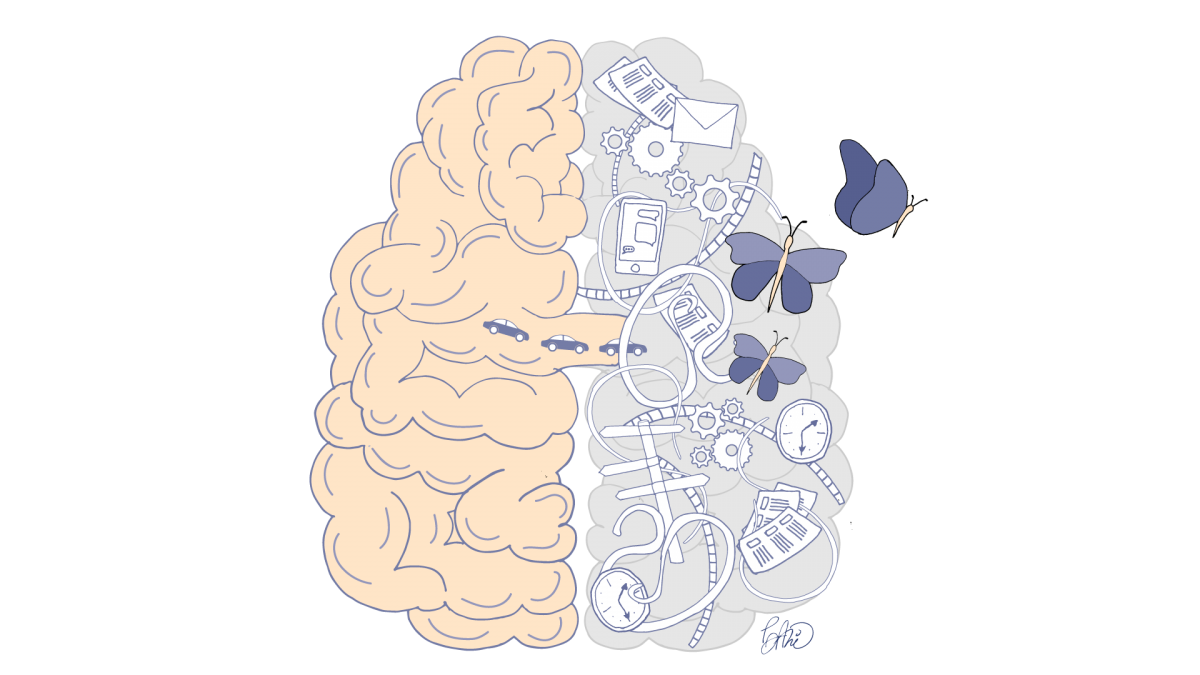
The Power of Intuition: How Modern Science Backs Ancient Wisdom
Introduction
For thousands of years, ancient cultures trusted intuition as a powerful guide in decision-making, healing, and spiritual growth. Often described as a gut feeling or inner voice, intuition was considered a natural form of intelligence. In modern times, intuition was sometimes dismissed in favor of logic and data. However, recent discoveries in neuroscience, psychology, and biology are now validating what ancient wisdom always knew: intuition is real, intelligent, and deeply connected to the human mind and body.
This article explores the power of intuition and how modern science supports this timeless inner guidance.
What Is Intuition?
Intuition is the ability to understand or know something without conscious reasoning. It operates quickly, often beyond words, and is shaped by experience, awareness, and emotional intelligence.
Key Characteristics of Intuition
- Instant understanding
- Non-logical but accurate insight
- Deep connection with emotions and body signals
- Often felt rather than thought
Ancient traditions viewed intuition as inner wisdom, while science now sees it as advanced subconscious processing.
Intuition in Ancient Wisdom
Many ancient philosophies placed intuition at the center of human awareness.
Ancient Perspectives
- Hindu philosophy: Inner knowing (Buddhi) guides right action
- Buddhism: Mindfulness sharpens intuitive awareness
- Greek philosophy: Socrates spoke of an inner guiding voice
- Indigenous traditions: Intuition as connection with nature and spirit
These traditions believed intuition arises when the mind is calm and ego is quiet.
The Brain Science Behind Intuition
Modern neuroscience explains intuition as the brain’s ability to process information rapidly and subconsciously.
How the Brain Supports Intuition
- The brain recognizes patterns before conscious thought
- Emotional centers (like the amygdala) influence intuitive responses
- Past experiences are stored and accessed instantly
Studies show that intuitive decisions often occur milliseconds before conscious awareness, proving intuition is fast and efficient.
The Gut-Brain Connection
Science has discovered the enteric nervous system, often called the second brain, located in the gut.
Why Gut Feelings Are Real
- The gut contains millions of neurons
- It communicates directly with the brain
- Emotional and intuitive signals often arise from this connection
This explains why intuition is frequently felt in the stomach or chest.
Intuition and Emotional Intelligence

Intuition is closely linked to emotional intelligence (EQ).
Scientific Findings
- People with higher emotional awareness have stronger intuition
- Emotions carry valuable information
- Suppressing emotions weakens intuitive signals
Ancient teachings emphasized emotional balance as a path to wisdom—modern psychology agrees.
The Role of the Subconscious Mind
The subconscious mind processes vast amounts of information beyond conscious awareness.
Intuition as Subconscious Intelligence
- Detects subtle cues and patterns
- Integrates logic, memory, and emotion
- Produces sudden insights or “aha” moments
Science confirms intuition is not random—it is deeply informed.
Meditation, Mindfulness, and Intuition
Ancient practices like meditation were designed to strengthen intuition.
Scientific Evidence
- Meditation reduces mental noise
- Enhances brain connectivity
- Improves clarity and awareness
Modern brain scans show that mindfulness practices activate regions linked to insight and intuition.
Intuition vs Logic: Not Opposites
A common myth is that intuition and logic are opposites.
Balanced Intelligence
- Logic analyzes information
- Intuition synthesizes information
- The best decisions use both
Research shows that combining intuitive insight with rational thinking leads to better outcomes.
Intuition in Modern Life
Today, intuition plays a role in many areas:
Where Intuition Helps
- Leadership and business decisions
- Creative problem-solving
- Relationships and communication
- Health and well-being
Many successful individuals credit intuition as a key factor in their achievements.
Exploring the intersection of ancient spiritual practices and modern scientific understanding, this article delves into how intuition plays a vital role in shaping our lives and how science validates it
A Journey Into the Unknown: The Power of Intuition
Intuition, often described as a “gut feeling” or a sudden flash of insight, has been revered in spiritual and philosophical traditions for millennia. Across different cultures, intuition has been seen as a bridge to the divine, an inner knowing that connects the conscious mind with the infinite wisdom of the universe. Yet, for much of modern history, intuition was dismissed as unscientific or merely an emotional response. But, as science continues to evolve, so too does our understanding of the mysterious and often misunderstood power of intuition.
What if this deep sense of knowing, so frequently experienced in moments of clarity, was more than just a vague feeling? What if modern science is finally catching up to the ancient wisdom that has long embraced intuition as a guiding force?
The Ancient Wisdom of Intuition
The concept of intuition is deeply embedded in many ancient spiritual traditions. In Hinduism, for example, intuition is tied to the concept of Jnana—a type of knowledge that transcends intellectual reasoning. In Buddhism, intuition is seen as a part of the awakening process, guiding individuals towards enlightenment. The ancient Greeks, too, revered intuition as a divine gift, often associated with their gods, especially the goddess Athena, who was believed to bestow wisdom and foresight.
Ancient civilizations believed that intuition allowed individuals to tap into higher realms of consciousness, offering glimpses into truths beyond the material world. It was seen not as a random or irrational feeling but as a vital tool for understanding the deeper realities of existence. People trusted their intuition to guide them through life’s most important decisions, from spiritual practices to personal relationships.
The Science of Intuition: Connecting the Mind and Body
In recent years, however, the scientific community has begun to validate what ancient wisdom has known for centuries. Neuroscience, psychology, and quantum physics have all contributed to a growing understanding of how intuition works within the human brain and body.
Recent studies have shown that intuition is rooted in the brain’s ability to process large amounts of information unconsciously. The subconscious mind stores countless bits of data that we are not consciously aware of. When we make intuitive decisions, it is often because our brain is processing this information at lightning speed and presenting it to us in the form of a “gut feeling.”
One of the most compelling scientific theories of intuition comes from the field of neurobiology, which suggests that the brain’s ability to perceive patterns and make predictions is a key component of intuitive decision-making. Our brain is constantly collecting data, even from the subtlest cues, and then using that information to form predictions about the future. This rapid processing often happens below the level of conscious awareness, making us feel like we’re “just knowing” something without logical reasoning.
Intuition and the Heart: The Role of the Body in Decision Making
What is even more fascinating is that recent research has also shown that the heart plays a significant role in intuitive decision-making. The Institute of HeartMath, an organization dedicated to studying the connection between the heart and brain, found that our heart has its own nervous system that communicates with the brain, sending signals that influence our decisions. The heart is not just a pump for blood—it is an organ that holds wisdom, too.
HeartMath researchers discovered that when people experience moments of “heart coherence,” a state where the heart’s rhythm aligns with the brain’s patterns, their intuitive abilities are heightened. This suggests that intuition is not merely a mental phenomenon but one that involves our entire being—the mind, the body, and even the energy fields that surround us.
By paying attention to these physiological responses, individuals can cultivate and refine their intuitive abilities. For instance, learning to listen to the messages of the body can lead to clearer, more confident decision-making in all areas of life.
Quantum Physics: A New Paradigm for Intuition
Perhaps the most surprising endorsement of intuition comes from the world of quantum physics. Theories in quantum mechanics, such as non-locality and entanglement, have challenged traditional understandings of time and space, suggesting that everything in the universe is interconnected at a fundamental level.
According to quantum theory, particles can be instantaneously connected, regardless of distance—something physicists call quantum entanglement. This phenomenon suggests that at the deepest level of reality, everything is interconnected, and information is transferred instantaneously between particles. If everything in the universe is connected, it raises the question: could intuition be a form of accessing this vast web of information that exists beyond time and space?
Many modern spiritual teachers, as well as scientists, believe that intuition is an ability to tap into this quantum field of information. By being in tune with the subtle energies of the universe, we can access wisdom and guidance that transcends time and space, much like quantum entanglement suggests.
The Role of Intuition in Daily Life
While the scientific exploration of intuition is still in its infancy, many people today are experiencing its power in their daily lives. Whether in business, relationships, or personal growth, individuals are increasingly turning to their intuition for guidance. The ability to make “gut decisions,” often without having all the logical evidence, is now recognized as a valid and essential skill for navigating the complexities of modern life.
In fact, many successful entrepreneurs, innovators, and leaders attribute their success to their ability to trust their intuition. Steve Jobs, for example, famously said, “Your work is going to fill a large part of your life, and the only way to be truly satisfied is to do what you believe is great work. And the only way to do great work is to love what you do.”
In the world of business, science, and personal development, intuition is now being seen as a necessary tool for problem-solving and creative innovation. As we continue to embrace intuition, we are acknowledging that it is not a mystical or esoteric gift reserved for the few, but a vital part of our human potential.
The Future of Intuition: Embracing the Intersection of Science and Spirit
As modern science continues to reveal the power of intuition, it becomes clear that the ancient spiritual teachings about inner knowing were not just poetic metaphors but representations of a deeper truth about the universe. The intersection of modern science and ancient wisdom offers a powerful framework for understanding the intuitive process, encouraging us to trust the wisdom that resides within us.
As our understanding of intuition deepens, we will likely see more integration of this knowledge into our daily lives. Practices like mindfulness, meditation, and body awareness can help people tune in to their intuitive abilities, allowing them to navigate life’s challenges with greater clarity and purpose. And as we move into a future where the boundaries between science and spirituality continue to blur, intuition will undoubtedly play a key role in helping humanity reach new heights of personal and collective consciousness.
Q&A: Understanding the Science Behind Intuition
Q: How does modern science explain intuition?
A: Modern science suggests that intuition arises from the subconscious processing of vast amounts of information. Our brains can detect patterns and make predictions without us being consciously aware of it.
Q: How can I enhance my intuition?
A: Practices like mindfulness, meditation, and paying attention to your body’s physical cues can help you become more attuned to your intuition. The key is to create space for stillness and awareness.
Q: Is intuition the same as gut feelings?
A: Yes, gut feelings are often considered a form of intuition. They arise when the subconscious mind processes information and sends signals to the conscious mind, often manifesting as a strong, instinctual feeling.
Q: Can science and spirituality coexist when it comes to intuition?
A: Absolutely. Many scientists and spiritual leaders now believe that science and spirituality can complement each other, especially in understanding complex phenomena like intuition. Science explains the mechanics, while spirituality highlights the experience.
A: Absolutely. Many scientists and spiritual leaders now believe that science and spirituality can complement each other, especially in understanding complex phenomena like intuition. Science explains the mechanics, while spirituality highlights the experience.
Q: Can intuition help us make better decisions in daily life?
A: Yes, intuition can guide us in making better decisions by helping us tune into the deeper wisdom of our subconscious mind, often leading to clearer, more confident choices in various aspects of life.

